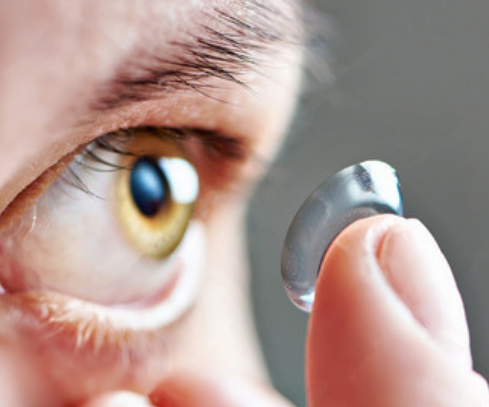Tank Bund Road, Brhampur
Gulbarga, KA 585101
96326 02090
Call for appointment
Retina Laser centre
A unit of Kamal eye hospital
Gulbarga, KA 585101
Call for appointment
A unit of Kamal eye hospital
What is Implantable Contact Lens?
Implantable Contact Lens or ICL is a simple yet high tech version of correcting refractive errors. If your doctor doesn’t agree to do LASIK treatment on your eyes, then no need to worry. Implantable contact lens service is there!
Here is the entire information on ICL that gives a new hope to live your life without any constraints and restrictions of spectacles or contact lens.

Tests done before ICL
The patient should stop using contact lenses for a specific period of time or the time advised by the doctor to get done the ICL procedure. In addition to this, he/she need to go through a list tests before going under seizure:
Spectacle power assessment: This test is done to assess the spectacle power, corneal topography using OrbscanlIz / Pentacam is done to assess corneal curvature, its diameter, and anterior chamber depth.
Peripheral Retinal Examination:
Refractive lensectomy is a similar procedure to the cataract surgery. In this, a clear crystalline lens is removed from the eye and replaced by an intraocular lens, which can be either a monofocal or multifocal lens. Where Lasik & ICL procedure doesn’t need high powers, refractive lensectomy needs it.
After doing enormous research on this topic, the conclusion came that the children as young as 8 years of age can be used to, care, and handle for contacts. An 8 years age boy or girl must be well aware of maturity towards delicate things, personal hygiene, and care. These are the vital elements to consider when opting for contact lens.
There are certain steps to ensure that your eyes stay healthy and the contacts long-lasting. While soft lenses need extra care and hand hygiene before placing or removing the lens, a rigid gas permeable contact lens is delicate to handle.
It is proven that contact lenses are a healthier vision option for millions of people. But it all depends upon your eye care professional who will determine if they are right for you or not. However, there are some serious concerns like “corneal ulcer” or “microbial keratitis” related to contact lens.
No, of course not. At worst, if you rub your eye, and dislodge the lens from its proper position, you may face trouble finding it under your upper eyelid. If necessary, visit your eye care practitioner, and he/she may help you locate and remove the lens.
Disposable lenses are the most recommended contact lenses by doctors. Why? Because there is less chance of building protein and bacteria on them. If you wear daily disposable contact lenses. You won’t have to buy contact lens solutions to clean and disinfect them after each use.
Yes. Specially designed soft contact lenses or GP lenses are used for overnight orthokeratology can slow or control the lengthening of the eye, which causes myopia(nearsightedness).
Extended wear contact lenses are made of special materials that allow oxygen to reach your eye, making it safer to wear, even during sleep. The food and drug administration recommends a maximum time limit that extended wear lenses can be worn. Some famous brands lenses can be worn up to 30 days, while other brands suggest wearing only up to 7 days.
It often takes one to two weeks for GP lenses to feel comfortable. As GP lenses are smaller than soft lenses, it moves more on the eye when you blink. Once your lids get used to the lenses moving over the lens edge when you blink, you will feel normal and easy.
Kamal Eye Hospital located in Kalaburagi, is one of the highly technologically advanced hospitals .The hospital is dedicated to serve patients with the latest and most innovative treatment procedures employing hi-tech equipment’s. It is the brain child of Dr Arun Kumar Shah and main focused area are Cataract, Retina and Glaucoma